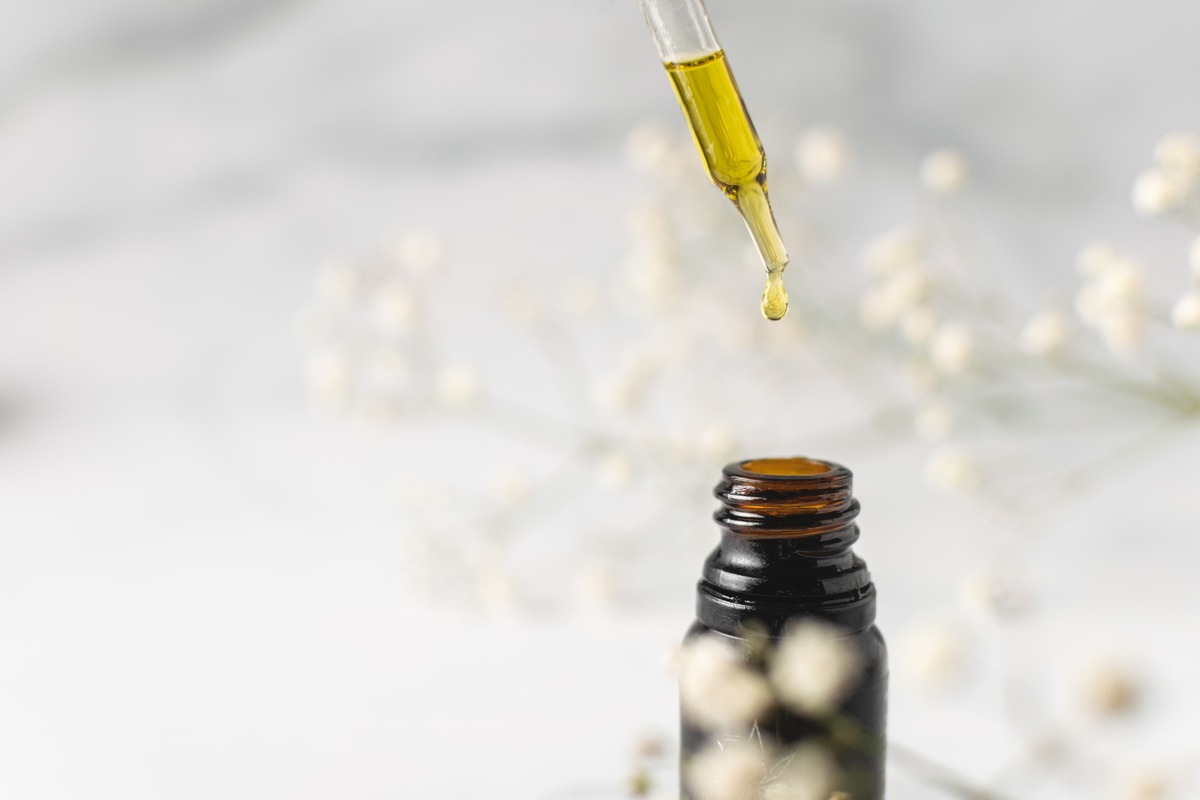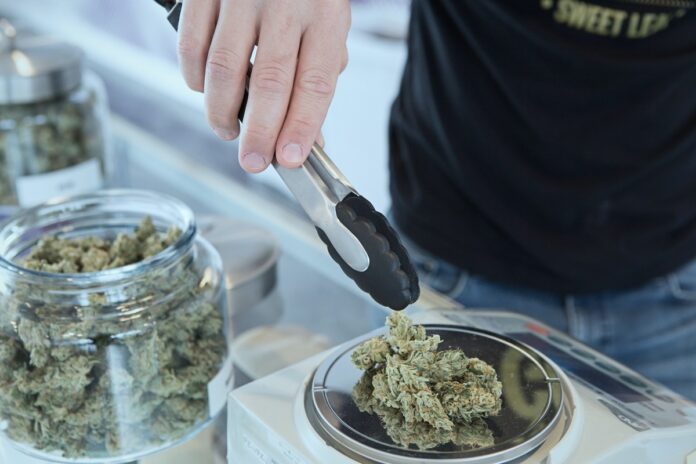Key Takeaways:
- Medical Marijuana Legalization: Oklahoma has a liberal medical marijuana policy, allowing any medical condition to qualify for a license.
- Recreational Marijuana Status: Recreational marijuana is not legal in Oklahoma, with recent attempts to legalize it being rejected by voters.
- License Costs: The cost for a medical marijuana license is $100, with discounts available for certain individuals.
- Residency Requirements: Proof of Oklahoma residency is required to obtain a medical marijuana card.
- Dispensary Licensing: Individuals and businesses can apply for a dispensary license in Oklahoma, subject to specific requirements and fees.
- Same-Day Medical Card: A same-day medical card is not available in Oklahoma; the process takes 3 to 4 weeks after approval.
- Voter Rejection of Recreational Use: Oklahoma State Question 820, which would have legalized recreational marijuana, was rejected by 61% of voters.
- Large Number of Dispensaries: Oklahoma has a significant number of licensed dispensaries, even more than the number of gas stations in the state.
The question of marijuana’s legal status has become a prominent and often contentious issue across the United States.
In Oklahoma, this subject is particularly complex, with laws and regulations that have evolved over time and continue to be a focal point of debate and discussion.
While the state has embraced a liberal approach to medical marijuana, allowing access to those with qualifying conditions, the prohibition of recreational use remains firmly in place.
This article aims to provide a comprehensive examination of Oklahoma’s marijuana laws, exploring the intricacies of the current legal framework, the economic and social impacts, and the potential future developments in this ever-changing landscape.
Oklahoma’s Stance on Marijuana
Medical Marijuana Laws
Oklahoma’s medical marijuana policy stands out as one of the more liberal approaches in the United States, allowing any medical condition to qualify for a license. This inclusive policy contrasts with many other states that have a specific list of qualifying conditions.
In Oklahoma, the process to obtain a medical marijuana license involves several steps. Applicants must provide proof of identity, residency, a recent photograph, and a signed recommendation from an authorized physician who has assessed the patient’s need for medical marijuana.
Once approved, licenses are valid for two years and can be renewed online, providing continued access to medical marijuana dispensaries across the state. The cost for a license is approximately $100 plus a $4.30 credit card processing fee.
However, there are discounted rates for individuals with legal status as a 100% covered disabled veteran or for those enrolled in Medicare or Medicaid. The fee is reduced to $20 plus a $2.50 credit card processing fee for these individuals.
Recreational Marijuana Status
While Oklahoma has embraced medical marijuana, the state has not extended this acceptance to recreational use. Recreational marijuana remains illegal, and attempts to change this status have been met with resistance.
A notable example is Oklahoma State Question 820, a measure that sought to legalize the purchasing, possession, and consumption of cannabis for recreational purposes throughout the state.
This proposal was put to a vote in the March 7, 2023 special election but was rejected by a majority of voters, with 61% voting against the measure.
The rejection of this initiative reflects a broader reluctance within the state to fully embrace recreational cannabis. It also raises questions about the future of marijuana legislation in Oklahoma and whether further attempts to legalize recreational use will gain traction.
The debate over recreational marijuana continues to be a significant and often divisive issue within the state, reflecting broader national trends and the complex interplay of legal, social, and cultural factors.
Federal vs. State Legislation

In the United States, the legal status of marijuana is a complex issue, marked by a dichotomy between federal and state laws.
Federally, marijuana is classified as a Schedule I controlled substance, rendering it illegal for any use. This places it alongside substances considered to have high abuse potential and no accepted medical use.
However, individual states have the authority to enact their own laws regarding marijuana, leading to a diverse and often conflicting legal landscape.
Some states have fully legalized recreational use, others permit medical use, and some maintain strict prohibitions.
This discrepancy between federal prohibition and state-level legalization creates legal challenges and uncertainties, particularly in areas like banking, law enforcement, and interstate commerce.
Even businesses operating legally under state law may face federal prosecution or challenges in securing banking services.
The tension between federal and state laws continues to shape the legal, economic, and social landscape of marijuana in the United States, including in Oklahoma, and has led to calls for national reform and clarity.
The interplay between these levels of legislation remains a dynamic and multifaceted issue that requires careful navigation and understanding.
Ways to Change Legal Status
- Decriminalization: This is the simplest form of legalization where penalties for possession are reduced, making it a misdemeanor or ticketable offense rather than a felony. This helps keep people from serving jail time or facing heavy criminal charges for using marijuana.
- Medical Legalization: This requires establishing a statewide program, including decisions on qualifying medical issues, approved doctors, and managing logistics.
- Recreational Legalization: This involves changing the status of cannabis as a controlled substance and establishing regulations for possession and selling.
Each of these requires careful planning, clear wording in legislation, and a framework to manage legal sales, including decisions on growing, dispensing, taxation, and qualifying medical conditions.
Economic and Social Impact
Dispensaries and Businesses
Oklahoma boasts a thriving medical marijuana industry with roughly 12,000 marijuana-based businesses and nearly 400,000 enrolled patients. With 2,835 licensed dispensaries, the state has more dispensaries than gas stations.
Economic Considerations
The medical marijuana program has introduced a new revenue stream for the state. However, the failure to legalize recreational use has limited further economic opportunities, including potential tax revenue and job creation.
Social Considerations
The liberal approach to medical marijuana has been met with mixed emotions and some pushback. There are concerns about potential changes to tighten regulations or formalize the program further, reflecting the complex attitudes towards marijuana in the state.
Future Prospects
Will Oklahoma Go Recreational?
The rejection of Oklahoma State Question 820 in the 2023 special election indicates a reluctance to fully legalize recreational cannabis. The state’s liberal medical program does not necessarily translate into support for full legalization, and recent voting patterns show that residents do not want recreational cannabis.
Potential Changes and Challenges
Legalizing marijuana is a complex process that involves many moving parts. Unclear or confusing language in a bill, lack of proper planning, and mixed public opinion can hinder the process. The future of recreational marijuana in Oklahoma remains uncertain, with potential for both expansion and restriction.
National Perspective
President Joe Biden’s statement about marijuana reform, including pardoning federally charged marijuana-based crimes and plans to revisit marijuana’s status as a controlled substance, adds another layer to the conversation. Until federal changes occur, marijuana will continue to be managed on the state level.
Conclusion
Oklahoma’s stance on marijuana is a nuanced and evolving issue. While medical marijuana is accessible to residents, recreational use remains prohibited. The state’s liberal medical program, the largest number of licensed dispensaries, and the recent rejection of recreational legalization paint a complex picture of the future of marijuana in Oklahoma. Time will tell if the state will join others in fully legalizing recreational cannabis or if the current status will remain.
FAQs
Q1: How can I apply for a medical marijuana card in Oklahoma?
Residents can apply online with a prescription from a certified physician.
Q2: How much is a marijuana license in Oklahoma?
The cost for a medical marijuana patient license in Oklahoma is $100 plus a $4.30 credit card processing fee. Fees may be reduced to $20 plus a $2.50 credit card fee with proof of enrollment in Medicaid or Medicare, and for veterans with 100% disability status.
Q3: Do you have to live in Oklahoma to get medical marijuana?
No, you do not have to be a resident of Oklahoma to get a medical marijuana license. Oklahoma offers out-of-state patient licenses for non-residents who have a state-issued medical marijuana license from their home state. This out-of-state patient license is valid for up to 30 days.
Q4: Can you get a dispensary license in Oklahoma?
Yes, you can apply for a dispensary license in Oklahoma, but as of August 26, 2022, a moratorium has been in place for new dispensary, grower, and processor licenses. This moratorium was extended to August 1, 2026, by HB 2095 (2023). The moratorium does not affect current licensees, who can apply for renewal. Detailed information about the application process and requirements for a dispensary license can be found on the Oklahoma Medical Marijuana Authority’s website.
Q5: Can you get a same-day medical card in Oklahoma?
Obtaining a same-day medical card in Oklahoma does not appear to be an option at the moment. The process involves a consultation with a licensed medical marijuana doctor, registration with the Oklahoma Department of Health, and approval. Once approved, the medical marijuana card will be mailed to the applicant and is expected to arrive in 2 weeks.


